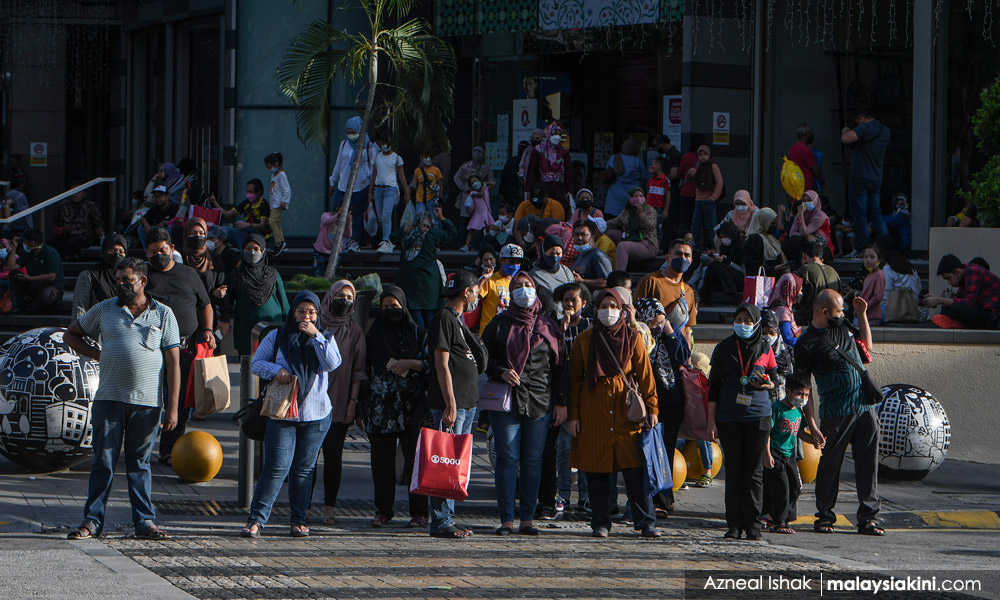The prime minister was quick to dismantle and brush off the suggestion from PKR lawmaker Hassan Abdul Karim to review Article 153 of the Federal Constitution on special privileges.
Hassan (above) did not suggest the provision be dispensed with or taken away. Review means he wants the government to take a critical look and evaluate the effects on policies emanating from the article.
Hassan’s suggestion is fair and reasonable. Most thinking Malaysians will want that discourse to take place. This is something we should have done long ago since “special privileges“ not only impacted the economy but stunted the nation’s growth in all walks of life in this young country.
It’s a unique constitutional provision not found anywhere else in the world. It is unique because this is the only country where the majority population is conferred privileges and special treatment over minorities. In other places, it’s the other way around.
When privileges are given naturally, some elements of discrimination are present. How is it helpful that we do not talk about the issues?
One can see the intent of Article 153 in different ways. Some will look at this provision as another “strong affirmative policy” allowing the govt to give more help to the bumiputera, licences for businesses and more places in education and employment to the Malays and natives of Sabah and Sarawak.
Those who hold on to this view would not mind - I suspect - if policies are evaluated openly and transparently. Policies that cater for disadvantaged groups or the less fortunate have to be dynamic and subject to review.
After all, empirically, we can determine by data if, indeed, the bumiputera have achieved parity with non-Malays. Or in which sectors they still lag.
Discourse healthy for national unity
If one takes this view of Article 153, then there is nothing seditious or harmful to discuss the subject. Such an approach will bring harmony to the various groups in the country, as no enmity will result from the discourse.
It will be healthy for national unity as the people can see their cooperation towards nation-building enhanced.

If, on the other hand, Article 153 confers a special position to the Malays vis a vis other groups - the Malay first policy - then naturally, the Malay leaders will not want the subject of Article 153 to be talked about. There is nothing to negotiate, evaluate or discuss on any subject, be it education, the economy, the laws or social issues.
Article 153 is not only about the Malays and others. It is also about Malays with other Malays. An unexamined and distorted view of the article has caused irreparable damage to the section of bumiputera, who are less “special than others.”
It is clearly in the interest of the larger Malay community that the article be adequately understood.
The effects of the unwillingness to talk about the subject have polarised us. The impact of the sedition laws has put the people in fear, thus making them unable to have a shared understanding and acceptance of what the article is all about.
After 67 years of independence, the fear of talking about Article 153 has brought our country to a new low. It’s not just the ringgit that is dangerously low, but our spirits, too.
We do not lack courage as a people, but why treat the article as the elephant in the room that no one wants to discuss? It has manifested a deep-seated fear and distrust among the citizens living here despite clear evidence that historically, we have lived together harmoniously for generations.
This article can be our source of strength and a weakness that can destroy us. We must be willing to talk to one another about it. We can also take the easy way and push the issue under the carpet as we have done for many years.
But remember, a country that is afraid of itself will always be mediocre. It will not flourish. It will never be great. It will be contented with false narratives that leaders brought with them for their benefit. - Mkini
ZAID IBRAHIM is a former law minister.
The views expressed here are those of the author/contributor and do not necessarily represent the views of MMKtT.




No comments:
Post a Comment
Note: Only a member of this blog may post a comment.